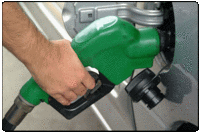Consumer Reports Poll: Car Buyers Seek Fuel Efficiency, But Remain Wary of Tradeoffs
Survey Finds Americans Want More Hybrid Choices
NEW YORK, May 24 -- Facing soaring gasoline prices, American car buyers definitely want more fuel-efficient vehicles but may not be ready to give up size, range, performance or other amenities to achieve that goal, a new Consumer Reports poll has found.
The Auto Pulse survey, conducted by the Consumer Reports National Research Center, polled a nationally representative sample of 1,804 people on issues concerning gas prices and tradeoffs they might be considering.
The survey, taken in late April, came just three weeks before the national average gas price spiked to a record $3.22 per gallon of regular unleaded gas on May 21. That is 32.6 cents more than at the same time last year, and nearly as high, after adjusting for inflation, as the all-time record set in March, 1981.
Even before the surge, gas prices were already on the mind of the roughly one in five respondents who planned to purchase a new car during the coming year.
Among that group, nearly seven in 10 said they would seek a vehicle with better fuel efficiency than their current model. Nearly half would consider a diesel, hybrid or flex-fuel vehicle (the latter can run on gasoline, E85, or any gasoline-ethanol blend), whereas only one in nine primarily drive such cars now.
Car buyers were wary, though, when asked what they would be willing to sacrifice in order to achieve higher miles per gallon. A bare majority (52 percent) said they would give up vehicle size or capacity. Somewhat fewer would trade off range (49 percent), performance (48 percent), or amenities (44 percent).
Forty-two percent said they would be willing to pay more for a fuel- efficient car, and 31 percent would pay more for special fuel.
The answers reflect the challenge consumers face in a market filled with large, gas-guzzling vehicles where buyers seeking to improve fuel efficiency often must pay extra -- typically about $3,000 to $4,000 more for a hybrid model as compared to a similar conventional vehicle. Selection is also limited. In fact, survey respondents in the market for a car but who aren't considering a hybrid said selection and price were the main reasons.



